new tools
Expand Your Knowledge of English
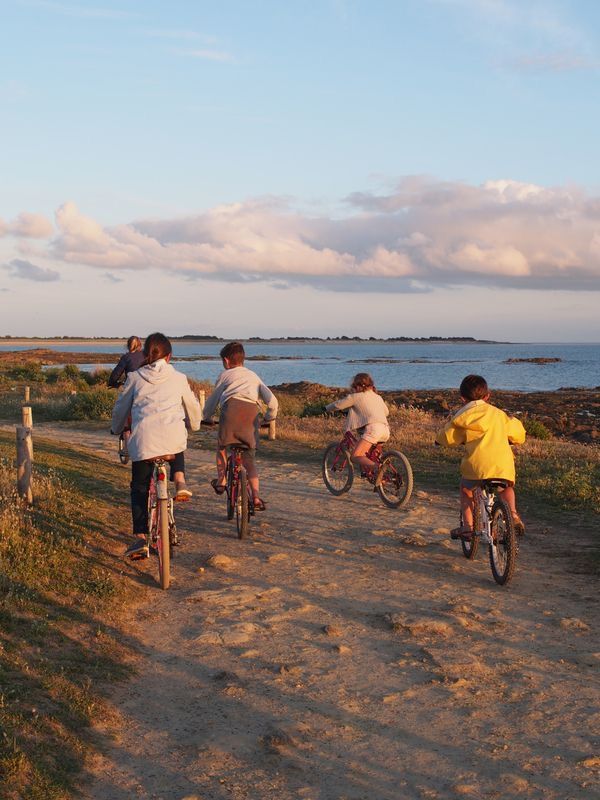
Времена для жизни
Present Tenses
Привычное, повседневное Present Simple

habits
She always adds milk in her coffee.
She goes to the gym every Wednesday.
always, usually, regularly, often, sometimes, rarely, seldom, never, every year, three times a day etc.
She always adds milk in her coffee.
She goes to the gym every Wednesday.
always, usually, regularly, often, sometimes, rarely, seldom, never, every year, three times a day etc.

daily routines
I wake up at 7.
He drinks coffee every morning.
I wake up at 7.
He drinks coffee every morning.

general truths, facts
The sun rises in the east.
Water boils at 100°C.
The sun rises in the east.
Water boils at 100°C.

scheduled events
The bus leaves at 9.
Our class starts at 8.
The bus leaves at 9.
Our class starts at 8.
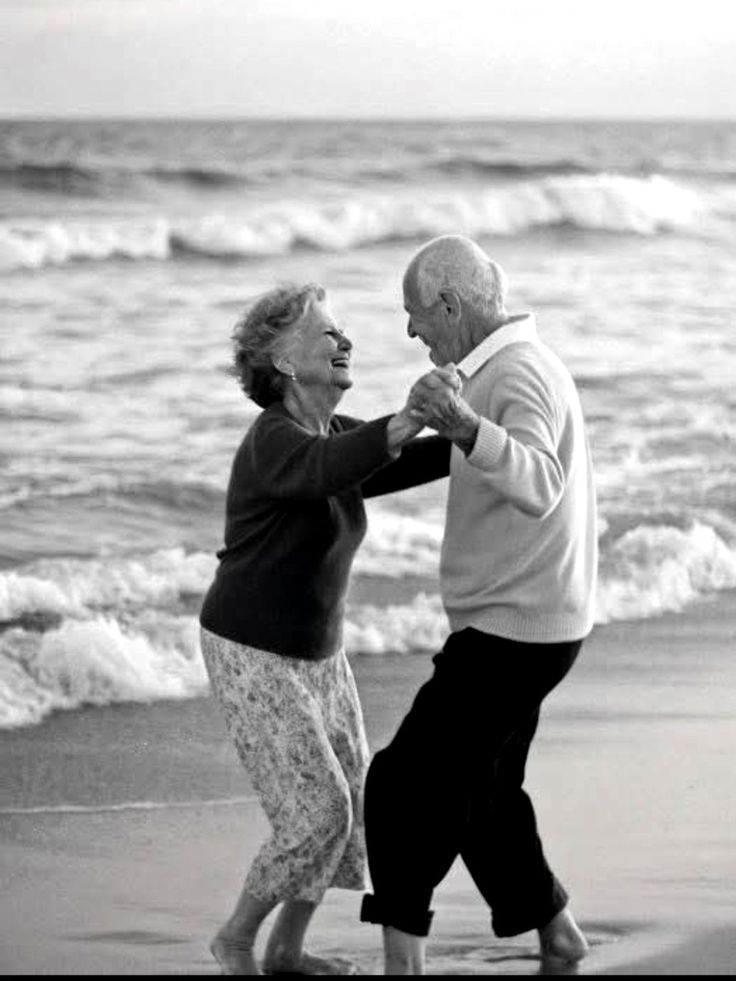
states
love, hate, know, believe, understand
love, hate, know, believe, understand
Present Simple or not?
В процессе, временное Present Continuous
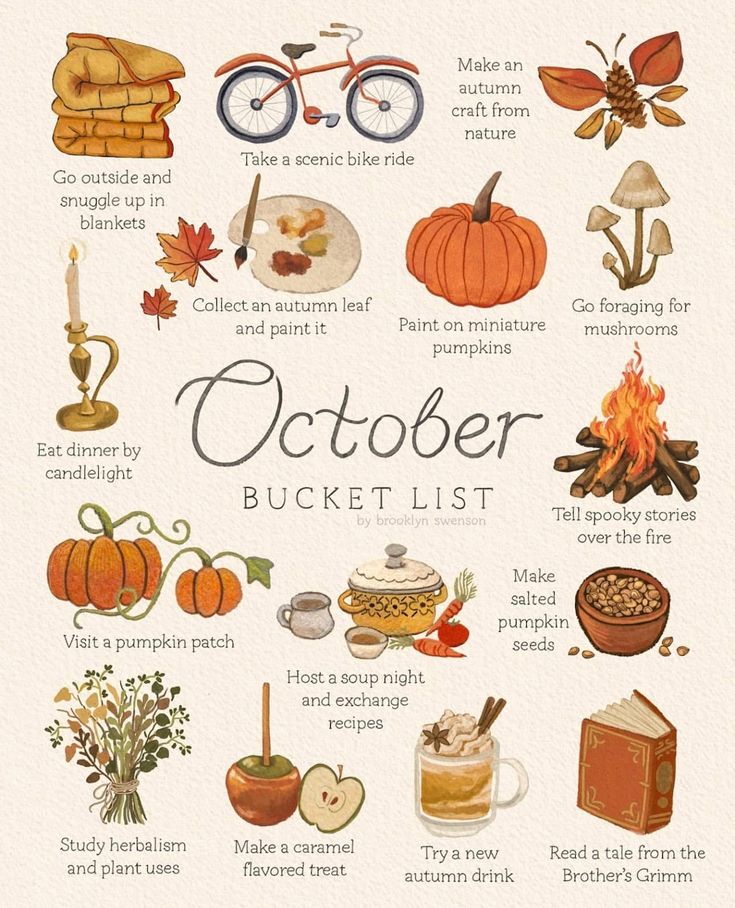
planned actions
We are going to visit them next week.
We are going to visit them next week.

future plans
We are meeting for lunch next Wednesday.
We are meeting for lunch next Wednesday.
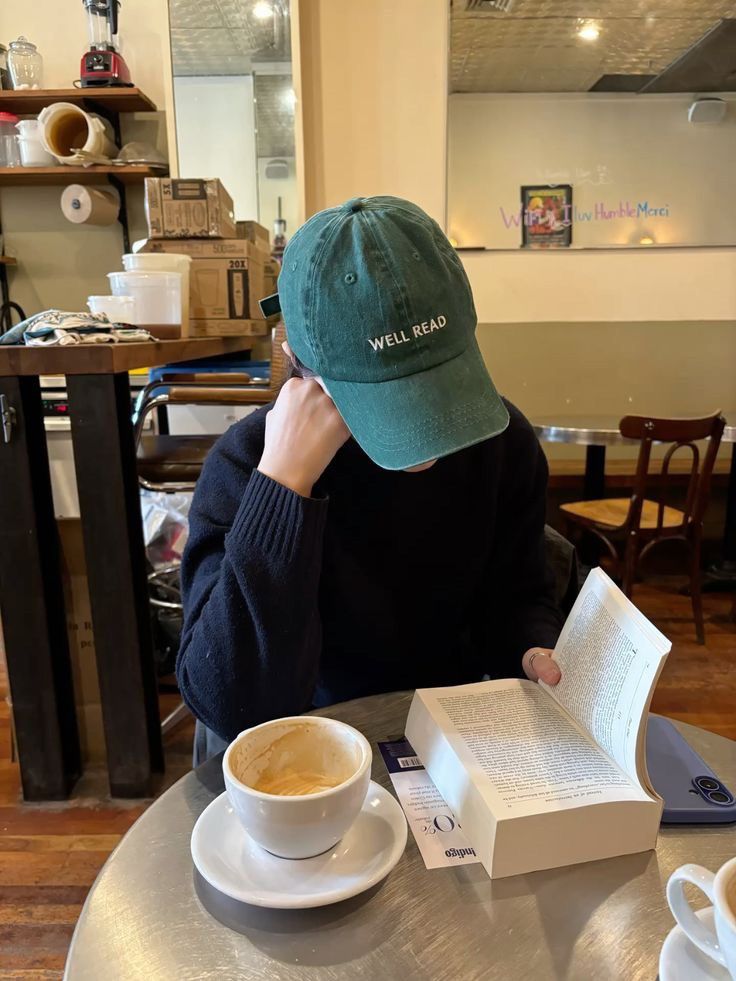
actions happening now
I am watching an episode.
I am watching an episode.

temporary situations
She is working from home this week.
She is working from home this week.

annoying habits
He is always forgetting things.
He is always forgetting things.
Present Continuous or not?
Результат, опыт Present Perfect

experiences
I have traveled to Spain.
I have traveled to Spain.
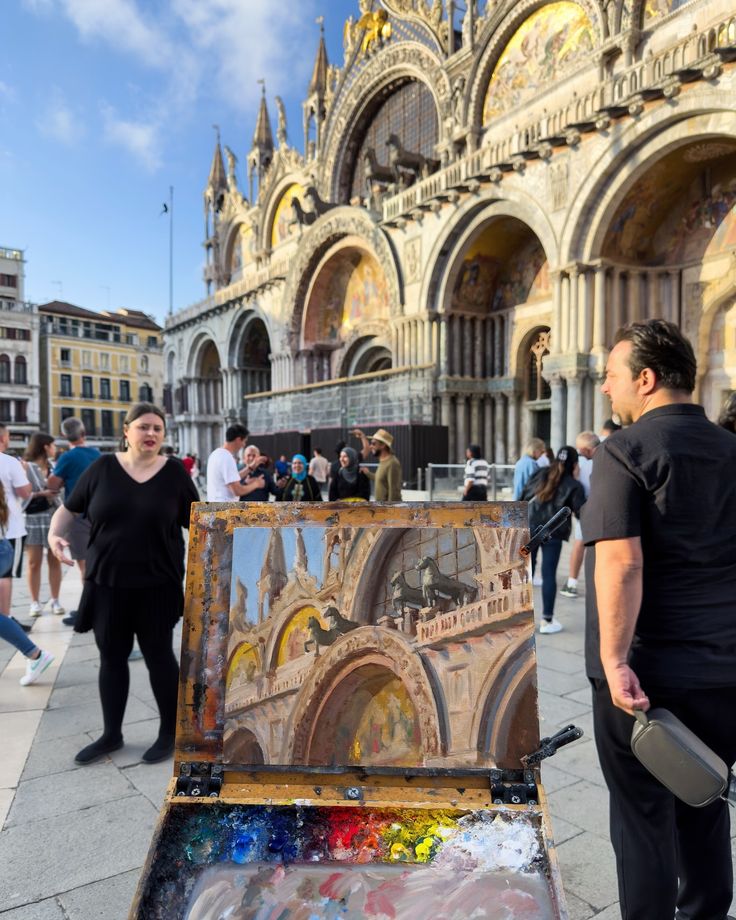
recent completed actions
I have just finished my book.
I have just finished my book.

started in the past and continue
She has worked there for 5 years.
She has worked there for 5 years.
Present Perfect or not?
Начали и продолжаем, ещё не отошли Present Perfect Continuous

actions that have just recently stopped but have a visible result in the present
I've been running all morning.
I've been running all morning.
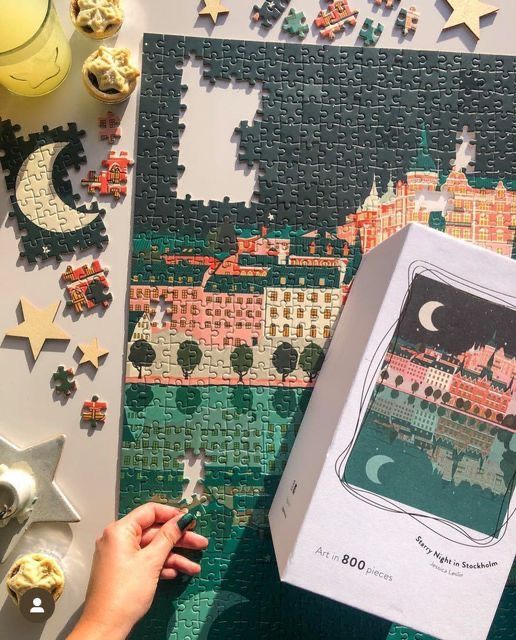
started in the past and continue
I've been painting this picture for a week.
I've been painting this picture for a week.
Present Perfect Continuous or not?
Which Present Tense is it?
Translate the sentences:
Translate the sentences:
Поставьте глаголы в правильном времени:
Переделайте Present Continuous в Present Perfect Continuous:
Поставьте глаголы в правильном времени:
Вставьте синонимы по смыслу:
persuade, fasten, anticipate, plead
persuade, fasten, anticipate, plead
Вставьте слова по смыслу:
Вставьте слова по смыслу:
My Present Simple
- I love architecture.
- I love architecture and coffee.
- I love sculpture and books.
- I love sculpture and painting.
- I love painting.
- I love autumn, pastry, walks and books.
- I love detective stories and photography.
- I love writing.
- I love chess and literature.
- I love chess and coffee.
Вставьте слова по смыслу:

Conditional 0
present + present
If I have time, I walk in the park for a long time.
When I want to eat, I cook something simple and tasty.
As soon as I understand something, I want to share it. (как только)
I love all pizza unless it has rucola on it. (если только не)
When I want to eat, I cook something simple and tasty.
As soon as I understand something, I want to share it. (как только)
I love all pizza unless it has rucola on it. (если только не)
Zero Conditional or not?
Fill in the gaps with Present Tenses:

Navigating feedback
Good or bad, there are ways to make the most of others’ views of your work
How do you respond when a teacher, coach or parent credits you for doing something well? Receiving praise can be lovely, but it might also make you feel shy or embarrassed at being singled out.
What about when someone says you need to improve? It’s natural to feel uncomfortable when you receive homework from a teacher who’s pointed out some errors, but it’s important to learn how to extract the elements that matter to you without letting it knock your confidence.
Is it friendly?
Before you consider someone’s feedback, it’s important to be sure the comments are intended to help you improve. If not, time spent mulling them over might be wasted.
Secondly, is it coming from an expert in the field? A maths teacher can comment on your calculations, your swimming coach can offer tips on your backstroke, but being open to feedback doesn’t mean taking everyone’s views on board. Feedback is not the same as criticism, and it’s good to learn to distinguish between the two.
Secondly, is it coming from an expert in the field? A maths teacher can comment on your calculations, your swimming coach can offer tips on your backstroke, but being open to feedback doesn’t mean taking everyone’s views on board. Feedback is not the same as criticism, and it’s good to learn to distinguish between the two.
Take a moment
It’s OK to be emotional after receiving what feels like negative feedback, and you don’t have to respond straightaway. If possible, go for a short walk. You could also write down what was said.
Consider if it was fair and accurate. If it’s challenging, it could be useful to talk to a parent or a trusted friend to give you another perspective on how to move forward.
Consider if it was fair and accurate. If it’s challenging, it could be useful to talk to a parent or a trusted friend to give you another perspective on how to move forward.

A sky full of stars
The sky at night is packed with wonders – to spot them, all you have to do is look up
There’s no streetlight and the night’s silence is broken only by the hoot of an owl. Your eyes scan the sky, growing accustomed to the dark. Then, gradually, you spot an incredible shimmer. The universe is revealing its magnificence…
The night sky has fascinated people for millennia and inspired many age-old myths and stories. The stars have always been helpful on a practical level too – ancient civilisations used them to navigate and track time. While it’s true that the darker the night sky, the more you’ll see, you don’t have to be in a remote place to enjoy a celestial show. Even in a city, if you move away from bright lights, it’s possible to see another planet.
Somehow, just gazing up at the stars can make you feel good, thanks to their undeniable beauty and the awe they inspire. Jess Sells, senior astronomy manager at the Royal Observatory, Greenwich in the UK, says of stargazing: ‘It’s a really great opportunity to take some time, get out of your own head and think about the greatness of the universe and our place in it.’
The night sky has fascinated people for millennia and inspired many age-old myths and stories. The stars have always been helpful on a practical level too – ancient civilisations used them to navigate and track time. While it’s true that the darker the night sky, the more you’ll see, you don’t have to be in a remote place to enjoy a celestial show. Even in a city, if you move away from bright lights, it’s possible to see another planet.
Somehow, just gazing up at the stars can make you feel good, thanks to their undeniable beauty and the awe they inspire. Jess Sells, senior astronomy manager at the Royal Observatory, Greenwich in the UK, says of stargazing: ‘It’s a really great opportunity to take some time, get out of your own head and think about the greatness of the universe and our place in it.’
Becoming a stargazer
Space can seem so remote and vast that it might feel hard to know where to begin. Astronomers recommend starting with just your eyes and maybe a good pair of binoculars. Useful telescopes start from a few hundred pounds, but aren’t essential.
You can have a go at stargazing from any outside space. If you’re in a garden, it helps to turn off lights in the house and find a spot that shields you from streetlamps. Allow 15 minutes for your eyes to get used to the dark. To avoid neck pain, you might like to sit in a deckchair, with a warm drink for extra cosiness.
It can be fun to have some company to enjoy stargazing, which is where astronomy groups come in. They share tips and equipment, and some even run low-cost trips.
Jess says: ‘There are a lot of astronomical societies that gather across the country. Even in London, you would assume that there’s so much light pollution you wouldn’t be able to see, but it varies.
‘As part of our Astronomy Ambassadors Group, we offer stargazing sessions, general chat with some of our astronomers and creative sessions where you can even design planetarium shows as well. It’s perfect for anyone with a passion for it.’
Sophie Allen and Erin Knight, both 16 years old, are members of the group. Sophie says: ‘When I was really young, my cousin had an interest in astronomy. He showed me pictures of nebulae (special coloured gas clouds in space) and he had a model of the solar system in his bedroom. I decided I wanted to go further into it. I wanted to know the science behind it, and how it works.’
Her advice is ‘go to a field or local park, realistically as far away from light as possible. Just look up and the fascination will come.’
Erin observes that astronomy ‘just seems really calming. Everything stands still when it’s just me and the sky. It takes you away from the noisy city and all the chaos in the world.’
You can have a go at stargazing from any outside space. If you’re in a garden, it helps to turn off lights in the house and find a spot that shields you from streetlamps. Allow 15 minutes for your eyes to get used to the dark. To avoid neck pain, you might like to sit in a deckchair, with a warm drink for extra cosiness.
It can be fun to have some company to enjoy stargazing, which is where astronomy groups come in. They share tips and equipment, and some even run low-cost trips.
Jess says: ‘There are a lot of astronomical societies that gather across the country. Even in London, you would assume that there’s so much light pollution you wouldn’t be able to see, but it varies.
‘As part of our Astronomy Ambassadors Group, we offer stargazing sessions, general chat with some of our astronomers and creative sessions where you can even design planetarium shows as well. It’s perfect for anyone with a passion for it.’
Sophie Allen and Erin Knight, both 16 years old, are members of the group. Sophie says: ‘When I was really young, my cousin had an interest in astronomy. He showed me pictures of nebulae (special coloured gas clouds in space) and he had a model of the solar system in his bedroom. I decided I wanted to go further into it. I wanted to know the science behind it, and how it works.’
Her advice is ‘go to a field or local park, realistically as far away from light as possible. Just look up and the fascination will come.’
Erin observes that astronomy ‘just seems really calming. Everything stands still when it’s just me and the sky. It takes you away from the noisy city and all the chaos in the world.’
What to spot
Bright planets such as Venus and Mars are frequently visible, while the Moon’s craters look dramatic through binoculars. Jupiter is a treat – with luck you might see four of its 95 moons as little dots circling the planet. They change position from night to night.
You may notice a group of stars that appear to form a shape. These are known as constellations and many are named after mythological animals and objects. Among the best-known and easiest-to-spot constellations are Orion and the Great Bear, which is also known as the Plough or the Big Dipper.
Erin says: ‘During the winter, I have a nice southern view of the sky, and there’s these really bright constellations that I see every year. Just going out on a cold night is lovely to see them.’
If you catch the stargazing bug, you might soon have a favourite star or planet to spot. Sophie says: ‘My favourites are meteors, comets, the Moon and the Milky Way.’
Meteor showers, which happen at the same time every year, are ideal times to see something magical. Meteors are also known as shooting stars because of their brilliant brightness and fast movement. They’re actually small particles entering the Earth’s atmosphere at high speed and shining brightly as they burn up. Popular showers to look for are the Geminids in December and the Perseids in August.
In future, if you spend any time travelling, you may have the chance to visit dark-sky regions where thousands of stars await. Sophie says: ‘I’ve heard the night sky is really good in Australia, so I’d love to go there. You can see the central bulge of the galaxy, which isn’t visible in the northern hemisphere.’
Whatever happens on Earth, the night sky will be up there, waiting to be explored. ‘I think I’ll always have a fascination with it!’ says Erin.
You may notice a group of stars that appear to form a shape. These are known as constellations and many are named after mythological animals and objects. Among the best-known and easiest-to-spot constellations are Orion and the Great Bear, which is also known as the Plough or the Big Dipper.
Erin says: ‘During the winter, I have a nice southern view of the sky, and there’s these really bright constellations that I see every year. Just going out on a cold night is lovely to see them.’
If you catch the stargazing bug, you might soon have a favourite star or planet to spot. Sophie says: ‘My favourites are meteors, comets, the Moon and the Milky Way.’
Meteor showers, which happen at the same time every year, are ideal times to see something magical. Meteors are also known as shooting stars because of their brilliant brightness and fast movement. They’re actually small particles entering the Earth’s atmosphere at high speed and shining brightly as they burn up. Popular showers to look for are the Geminids in December and the Perseids in August.
In future, if you spend any time travelling, you may have the chance to visit dark-sky regions where thousands of stars await. Sophie says: ‘I’ve heard the night sky is really good in Australia, so I’d love to go there. You can see the central bulge of the galaxy, which isn’t visible in the northern hemisphere.’
Whatever happens on Earth, the night sky will be up there, waiting to be explored. ‘I think I’ll always have a fascination with it!’ says Erin.
Tips for starspotters
Use a star wheel. Also known as a planisphere, this device helps you locate stars. Phone apps such as Night Sky or Sky Safari do the same job.
Avoid a full moon. Its intense light makes it harder to see anything else.
Head to a dark sky place. These are designated areas in 22 countries and are protected from light pollution, which benefits wildlife, as well as astronomers. See darksky.org and gostargazing.co.uk.
Know your space technology. A steady bright dot travelling slowly across the sky in a straight line is likely to be a satellite.
Visit a planetarium. Astronomy shows, often accompanied by sights and sounds, teach you what to look for, and are great options for daytime stargazing.
Avoid a full moon. Its intense light makes it harder to see anything else.
Head to a dark sky place. These are designated areas in 22 countries and are protected from light pollution, which benefits wildlife, as well as astronomers. See darksky.org and gostargazing.co.uk.
Know your space technology. A steady bright dot travelling slowly across the sky in a straight line is likely to be a satellite.
Visit a planetarium. Astronomy shows, often accompanied by sights and sounds, teach you what to look for, and are great options for daytime stargazing.
Fill in the blanks

Link your lists
How often do you put off doing something that you know you have to do? Temptation bundling is a neat trick to make those must-do tasks a bit more fun
link your lists объединить списки
to put off откладывать на потом
temptation bundling совместить приятное с полезным
a neat trick хитрый трюк
to unload the dishwasher разгружать посудомойку
to dread опасаться
rabbit hutch кроличья клетка
until the very last minute до последнего момента
to pair with совмещать, делать вместе
incentive стимул
in the longer term в долгосрочной перспективе
We all struggle to get certain things done. Do you hate unloading the dishwasher or always put off doing your homework? Or maybe you dread cleaning out a rabbit hutch or leave getting your school bag ready until the very last minute. But whatever it is that you put off doing, there’s a trick that could help.
Here’s how it works. You take something you’re putting off doing, and pair it with something you do like. So that could be only having a hot chocolate while you’re doing your homework (the key word being ‘only’!). It works as an incentive, and as well as motivating you to actually do the task, in the longer term it might even help you to enjoy it a bit more.
to put off откладывать на потом
temptation bundling совместить приятное с полезным
a neat trick хитрый трюк
to unload the dishwasher разгружать посудомойку
to dread опасаться
rabbit hutch кроличья клетка
until the very last minute до последнего момента
to pair with совмещать, делать вместе
incentive стимул
in the longer term в долгосрочной перспективе
We all struggle to get certain things done. Do you hate unloading the dishwasher or always put off doing your homework? Or maybe you dread cleaning out a rabbit hutch or leave getting your school bag ready until the very last minute. But whatever it is that you put off doing, there’s a trick that could help.
Here’s how it works. You take something you’re putting off doing, and pair it with something you do like. So that could be only having a hot chocolate while you’re doing your homework (the key word being ‘only’!). It works as an incentive, and as well as motivating you to actually do the task, in the longer term it might even help you to enjoy it a bit more.
approach подход
to carry out проводить
to encourage побуждать, стимулировать
to dip into погружаться
Scientists call this tactic ‘temptation bundling’. They researched the approach and found that bundling the things we want to do together with things we should do is a smart way to get motivated.
There had been carried out a study encouraging students to exercise while listening to exciting audiobooks at the same time. The first group could only listen to the audiobooks at the gym (and at no other time), while the second group could dip into their audiobooks wherever and whenever they wanted to. It turned out that the first group was 51% more likely to exercise than the other group.
to carry out проводить
to encourage побуждать, стимулировать
to dip into погружаться
Scientists call this tactic ‘temptation bundling’. They researched the approach and found that bundling the things we want to do together with things we should do is a smart way to get motivated.
There had been carried out a study encouraging students to exercise while listening to exciting audiobooks at the same time. The first group could only listen to the audiobooks at the gym (and at no other time), while the second group could dip into their audiobooks wherever and whenever they wanted to. It turned out that the first group was 51% more likely to exercise than the other group.
to be unlikely to маловероятно
to stick to придерживаться
to look forward to ждать с нетерпением
to stick on запасть на
This technique is especially helpful if you’re trying to change a long-term habit. If you don’t find something fun, you’re unlikely to stick to it. But with temptation bundling, you might find yourself actually looking forward to doing that task you used to dread.
You could try:
to stick to придерживаться
to look forward to ждать с нетерпением
to stick on запасть на
This technique is especially helpful if you’re trying to change a long-term habit. If you don’t find something fun, you’re unlikely to stick to it. But with temptation bundling, you might find yourself actually looking forward to doing that task you used to dread.
You could try:
- Having a snack while you do your homework.
- Watching your favourite TV show when you clean your shoes.
- Listening to a brilliant song while emptying the dishwasher.
- Sticking on a great audiobook while you tidy your room.
Remember that what you enjoy will be different from what your friends enjoy. So for you, reorganising your clothes drawers might be satisfying, and something you could do at the same time as listening to a podcast about history that you’ve been avoiding for ages. But for someone else, tidying clothes might be the biggest chore ever – in which case they might like to organise them while watching an episode of their favourite show.
to complement дополнять
to require требовать
effort усилие
to get around обойти
to spoil испортить
buddy парный
unless если только не
to require требовать
effort усилие
to get around обойти
to spoil испортить
buddy парный
unless если только не
- Find tasks that complement each other, and require different amounts of effort. The reason the homework and hot chocolate pairing works is that while you need to give lots of attention to your homework, you can enjoy your drink without too much thought or effort.
- Make a promise to yourself to only do the thing you love when you’re doing the thing you should be doing, and try to stick to it – even if it’s only when you’re testing out the approach for a week.
- Don’t make every activity you like about chocolate or sugar! Try to think of other non-food things you like too.
- Don’t take it too far – if you really dislike doing something, maybe you can find another way to get around it. You don’t want to spoil how much you enjoy the thing you do like.
- The key to making this work is to promise yourself that you’ll only do the thing you enjoy doing while you’re doing its buddy activity. But it can be hard to stick to promises you make to yourself! So to try out the technique, give yourself a set time (like a week). You’ll be much more likely to stick to it than if you tell yourself you’ll NEVER have hot chocolate ever again unless you’re doing homework!
Fill in the blanks
Grammar Insights
Grammar Practice
Subjunctive Mood
There are typically three main types of conditional sentences that commonly use the subjunctive (or forms that resemble it).
If she were taller, she might be a model. (second)
If she hadn't missed the bus, she might have arrived on time. (third)
If I hadn't stayed up so late last night, I wouldn't be so tired today. (mixed)
The "wish" construction typically uses the past subjunctive to talk about present unreal situations or regrets, and the past perfect subjunctive to talk about past unreal situations or regrets.
I wish she were here.
I wish they hadn't been so rude.
I wish he would stop talking.
Underline the verbs in the following sentences that are in the subjunctive mood.
Fill in the blanks with the correct present subjunctive form of the verb in parentheses.
Fill in the blanks with the correct past subjunctive form of the verb in parentheses.
Rewrite the following sentences using the subjunctive mood where appropriate.
Subjunctive Mood
There are typically three main types of conditional sentences that commonly use the subjunctive (or forms that resemble it).
If she were taller, she might be a model. (second)
If she hadn't missed the bus, she might have arrived on time. (third)
If I hadn't stayed up so late last night, I wouldn't be so tired today. (mixed)
The "wish" construction typically uses the past subjunctive to talk about present unreal situations or regrets, and the past perfect subjunctive to talk about past unreal situations or regrets.
I wish she were here.
I wish they hadn't been so rude.
I wish he would stop talking.
Underline the verbs in the following sentences that are in the subjunctive mood.
- It is essential that he be on time.
- If I were you, I would apologize.
- The teacher suggested that we study harder.
- I wish she had come to the party.
- They demanded that the report be finished by Friday.
Fill in the blanks with the correct present subjunctive form of the verb in parentheses.
- It is important that she _________ (understand) the instructions.
- The doctor recommended that he _________ (take) a break.
- They insisted that we _________ (be) careful.
- I suggest that you _________ (go) home now.
- It is necessary that everyone _________ (participate).
Fill in the blanks with the correct past subjunctive form of the verb in parentheses.
- If I _________ (know) the answer, I would tell you.
- She wishes she _________ (travel) more last year.
- They acted as if they _________ (not see) the sign.
- He spoke as though he _________ (be) a king.
- If they _________ (arrive) earlier, they could have joined us.
Rewrite the following sentences using the subjunctive mood where appropriate.
- Perhaps he will call later. (Use: It is possible that...)
- I really want her to succeed. (Use: I insist that...)
- They talked about the accident as if they knew all the details. (Use: They talked about the accident as though...)
- It is important for everyone to be present at the meeting. (Use: It is important that...)
- If she had more time, she would travel the world. (Keep the 'if' clause and use the correct subjunctive form.)
Grammar Insights
Grammar Practice
A Kind Reminder
The "Were" Subjunctive (often used for hypothetical "if" clauses and wishes):
The "Base Form" Subjunctive (often used after certain verbs, expressions, and in formal contexts):
This form uses the base form of the verb (the infinitive without "to").
Key things to remember about the subjunctive mood:
1. Gap Fill (choose the best option):
It is essential that every student _________ the instructions carefully before the exam.
a) reads b) read c) will read d) has read
It is vital that you _________ the confidential information with anyone outside the company.
a) don't share b) not to share c) not share d) won't share
Extra
1. The teacher recommended that every student _________ (complete) all the exercises.
2. It is crucial that the evidence _________ (tamper) with in any way.
3. If only he _________ (listen) to my advice earlier!
4. The new policy requires that all employees _________ (attend) the safety briefing.
5. She spoke as if she _________ (be) a witness to the entire event.
6. It is essential that the documents _________ (file) correctly.
7. I wish they _________ (not make) so much noise.
8. The judge insisted that the witness _________ (tell) the whole truth.
9. He acted as though he _________ (never see) a computer before.
10. It is important that you _________ (be) on time for your interview.
Answer Key:
Here's a variety of question types to challenge you:
1. Gap Fill (choose the best option):
Despite _____ all night, he still felt surprisingly energetic.
a) to study
b) studying
c) having studied
d) to have been studying
2. Sentence Transformation (rewrite the sentence so that it has a similar meaning, using the word given):
It's possible that they didn't receive the message. (MAY)
They _____ the message.
3. Error Correction (identify and correct the error in the sentence):
The manager insisted that every employee reports to the meeting on time, regardless of their personal commitments.
4. Word Formation (complete the sentence using the correct form of the word in brackets):
His constant _____ (CRITICIZE) of his colleagues created a tense atmosphere in the office.
5. Linking Words and Phrases (choose the best linking word or phrase to complete the sentence):
_____ the high cost of living in the city, many young professionals still choose to move there for the career opportunities.
a) Consequently
b) Nevertheless
c) Furthermore
d) In spite of
A Kind Reminder
The "Were" Subjunctive (often used for hypothetical "if" clauses and wishes):
- If I were you, I would apologize. (Hypothetical situation - I am not you.)
- I wish he were here. (Wish about a present situation that is not true.)
- They acted as if nothing were wrong. (Unreal situation.)
The "Base Form" Subjunctive (often used after certain verbs, expressions, and in formal contexts):
This form uses the base form of the verb (the infinitive without "to").
- After verbs of suggestion, demand, or recommendation:
- The doctor suggested that he stop smoking.
- The doctor suggested that he not smoke.
- The committee recommended that the proposal be approved.
- The committee recommended that the proposal not be accepted in its current form.
- They insisted that everyone be on time.
- It is crucial that she understand the instructions.
- It is crucial that she not misunderstand the instructions.
- It is essential that the work be completed by Friday.
- It is important that you be present at the meeting.
- It is vital that the evidence remain secure.
- God save the Queen! (An archaic but recognizable use.)
Key things to remember about the subjunctive mood:
- Present Subjunctive: The verb takes its base form (no "-s" for third person singular).
- Past Subjunctive: The verb "to be" becomes "were" for all persons. Other verbs often look like the simple past, but the context indicates it's hypothetical.
- The subjunctive mood is becoming less common in informal spoken English, with speakers often using "if + was" or "should" instead. However, it's still important in formal writing and certain expressions.
1. Gap Fill (choose the best option):
It is essential that every student _________ the instructions carefully before the exam.
a) reads b) read c) will read d) has read
It is vital that you _________ the confidential information with anyone outside the company.
a) don't share b) not to share c) not share d) won't share
Extra
1. The teacher recommended that every student _________ (complete) all the exercises.
2. It is crucial that the evidence _________ (tamper) with in any way.
3. If only he _________ (listen) to my advice earlier!
4. The new policy requires that all employees _________ (attend) the safety briefing.
5. She spoke as if she _________ (be) a witness to the entire event.
6. It is essential that the documents _________ (file) correctly.
7. I wish they _________ (not make) so much noise.
8. The judge insisted that the witness _________ (tell) the whole truth.
9. He acted as though he _________ (never see) a computer before.
10. It is important that you _________ (be) on time for your interview.
Answer Key:
- complete (base form after "recommended that")
- not be tampered (negative passive base form after "crucial that")
- had listened (past perfect subjunctive for a wish about the past)
- attend (base form after "requires that")
- had been (past subjunctive of "be" after "as if" for an unreal past situation)
- be filed (passive base form after "essential that")
- did not make OR not make (past subjunctive for a wish about the present; "did not make" is more common in informal speech)
- tell (base form after "insisted that")
- had never seen (past perfect subjunctive after "as though" for an unreal past situation)
- be (base form after "important that")
Here's a variety of question types to challenge you:
1. Gap Fill (choose the best option):
Despite _____ all night, he still felt surprisingly energetic.
a) to study
b) studying
c) having studied
d) to have been studying
2. Sentence Transformation (rewrite the sentence so that it has a similar meaning, using the word given):
It's possible that they didn't receive the message. (MAY)
They _____ the message.
3. Error Correction (identify and correct the error in the sentence):
The manager insisted that every employee reports to the meeting on time, regardless of their personal commitments.
4. Word Formation (complete the sentence using the correct form of the word in brackets):
His constant _____ (CRITICIZE) of his colleagues created a tense atmosphere in the office.
5. Linking Words and Phrases (choose the best linking word or phrase to complete the sentence):
_____ the high cost of living in the city, many young professionals still choose to move there for the career opportunities.
a) Consequently
b) Nevertheless
c) Furthermore
d) In spite of
Grammar Insights
Grammar Practice
Cleft Sentences
John broke the vase.
It was John who broke the vase.
Who broke the vase was John.
Create cleft sentences:
It was the heavy rain that flooded the streets.
What flooded the streets was the heavy rain.
Translate:
Cleft Sentences
John broke the vase.
It was John who broke the vase.
Who broke the vase was John.
Create cleft sentences:
It was the heavy rain that flooded the streets.
What flooded the streets was the heavy rain.
- She baked a delicious chocolate cake for the party.
- The old key opened the secret door.
- The loud music kept everyone awake.
Translate:
- Following the muddy footprints, we finally reached the old cabin.
- "The fireworks display is tonight!" she exclaimed. "I won't miss this for the world!"
- "You asked for a glass of water? Here you go."
- "Thanks for your help!" "Ta!" he replied, waving as he left.
- "This bench looks lovely and quiet. Mind if I join you?" she asked politely.
- The police are still searching for witnesses to the accident that occurred last night.
- He must have seen it something suspicious.
Grammar Insights
Grammar Practice
Translate:
Inversion Structure
Never had they witnessed such a spectacular event.
Only when it was too late did he realize the danger.
Hardly had she started her presentation when the power went out.
Not only did they lose the game, but they also damaged their reputation.
No sooner had he arrived than the storm broke.
Translate:
Translate:
Translate:
- She knew that he would not tell her who he thought the killer was; she was even a little frightened of knowing, notwithstanding the fact that she could think of nothing else.
Inversion Structure
Never had they witnessed such a spectacular event.
Only when it was too late did he realize the danger.
Hardly had she started her presentation when the power went out.
Not only did they lose the game, but they also damaged their reputation.
No sooner had he arrived than the storm broke.
Translate:
- Never had I been so wrong.
- Rarely did she speak of her past.
- Little did he know what awaited him.
- Not only did she possess beauty, but also a sharp wit.
Translate:
- Знай я, я бы пришёл заранее.
- Никогда он не видел такого дорогого мороженого.
- Она не только забыла про блюдо в духовке, но ещё забыла купить сливки для торта.
- И только когда гости ушли, я понял, что устал.
- Редко они заканчивали игру до полуночи.
Grammar Insights
Grammar Practice
Translate:
Translate:
- Редко она испытывала такой прилив волнения. (Инверсия)
- Именно неожиданный телефонный звонок принес хорошие новости. (cleft sentence)
- Давно пора нам начать планировать наш летний отпуск. ("It's high time")
- Я бы предпочел, чтобы ты не упоминал мою ошибку начальнику. ("I'd rather you")
- Несмотря на сильный дождь, концерт под открытым небом состоялся по расписанию. (Notwithstanding)
- Хотя и сложный, поход открыл захватывающие виды. (Albeit)
- Не успели гости приехать, как погас свет. (Инверсия)
- Именно в этой маленькой деревне родились мои бабушка и дедушка. (cleft sentence)
- Давно пора правительству серьезно заняться проблемой изменения климата. ("It's high time")
- Я бы предпочел, чтобы ты сосредоточился на учебе, а не играл в видеоигры целый день. ("I'd rather you")
- Несмотря на отсутствие опыта, он оказался ценным сотрудником команды. (Notwithstanding)
- Хотя и уставшая, она допоздна не ложилась спать, чтобы закончить важный отчет. (Albeit)
- Только после долгих размышлений они пришли к окончательному решению. (Инверсия)
- Именно упорные слухи в конце концов привели к его отставке. (cleft sentence)
- Давно пора нам извлечь уроки из прошлых ошибок и двигаться вперед. ("It's high time")
Grammar Insights
Grammar Practice
Inversion
never, rarely, seldom, hardly, scarcely, barely, no sooner... than, not only... but also, under no circumstances, on no account, in no way, at no time, little.
Often with verbs of motion like come, go, lie, stand
Exercises:
Rewrite the following sentences using inversion where appropriate.
I'd rather
"I'd rather" + base form of the verb: Used when the subject of the preference is the same as the speaker.
Complete the following sentences using "I'd rather" and the words in parentheses.
It's high time
The grammatical structure is:
Complete the following sentences using "it's high time" and the words in parentheses.
Inversion
never, rarely, seldom, hardly, scarcely, barely, no sooner... than, not only... but also, under no circumstances, on no account, in no way, at no time, little.
- Normal: I have never seen such a beautiful sight.
- Inversion: Never have I seen such a beautiful sight.
- Normal: I realized the mistake only later.
- Inversion: Only later did I realize the mistake.
- Normal: You will succeed only if you work hard.
- Inversion: Only if you work hard will you succeed.
- Statement: I am tired.
- Agreement: So am I.
- Statement: He doesn't like spicy food.
- Agreement: Neither/Nor do I.
- Normal: If you had told me earlier, I could have helped.
- Inversion: Had you told me earlier, I could have helped.
- Normal: If he should call, please take a message.
- Inversion: Should he call, please take a message.
- Normal: If I were you, I would apologize.
- Inversion: Were I you, I would apologize.
Often with verbs of motion like come, go, lie, stand
- Normal: A beautiful fountain stood in the garden.
- Inversion: In the garden stood a beautiful fountain.
- Normal: The bus is coming down the street.
- Inversion: Down the street is coming the bus.
Exercises:
Rewrite the following sentences using inversion where appropriate.
- They had rarely experienced such bad weather.
- You can achieve your goals only by working persistently.
- I don't enjoy horror movies, and my brother doesn't either.
- If the situation were to worsen, we would need to evacuate.
- A small cottage lay at the foot of the hill.
- He had no idea what was about to happen.
- We will consider your application only if you meet all the criteria.
- She should contact us immediately if she has any problems.
- The children ran excitedly into the garden.
- I have never felt so happy.
I'd rather
"I'd rather" + base form of the verb: Used when the subject of the preference is the same as the speaker.
- I'd rather stay home tonight. (Meaning: I prefer to stay home tonight.)
- She'd rather go for a walk. (Meaning: She prefers to go for a walk.)
- I'd rather have gone to the concert last night. (Meaning: I regret not going to the concert last night; I would have preferred to go.)
- They'd rather not have said anything. (Meaning: They regret saying something; they would have preferred to remain silent.)
- I'd rather you didn't smoke in here. (Meaning: I prefer that you don't smoke in here.)
- She'd rather he came on time. (Meaning: She prefers that he comes on time.)
- We'd rather they helped us with the cleaning. (Meaning: We prefer that they help us with the cleaning.)
Complete the following sentences using "I'd rather" and the words in parentheses.
- I don't feel like going out. I'd rather ________ (stay) in.
- She regrets telling him the secret. She'd rather ________ (not tell) him.
- Do you want tea or coffee? I'd rather ________ (have) water, please.
- My parents would prefer us to visit them this weekend. They'd rather ________ (we / visit) them.
- He missed the train. He'd rather ________ (get up) earlier.
- Would you prefer to sit inside or outside? I'd rather ________ (sit) outside.
- They don't want the meeting to be postponed. They'd rather ________ (it / take place) as scheduled.
- I wish I hadn't eaten so much cake. I'd rather ________ (not eat) so much.
- Does he want to travel by train or plane? He'd rather ________ (travel) by train.
- We would prefer you to pay in cash. We'd rather ________ (you / pay) in cash.
It's high time
The grammatical structure is:
- It's high time + past simple: Even though it refers to the present or future action, we use the past simple tense.
- It's high time you went to bed. (Meaning: You should have gone to bed a while ago, and you really need to go now.)
- It's high time the government did something about unemployment. (Meaning: The government should have addressed unemployment earlier, and it's crucial they act now.)
- It's high time we had a serious discussion about our finances. (Meaning: We should have talked about our finances before now, and it's important to do it soon.)
- It's time to go home. (Neutral statement about the appropriate time.)
- It's about time they fixed the road. (Slightly stronger than "it's time," suggesting it's a bit late.)
- It's high time he apologized for his behavior. (Strongest emphasis on something being overdue.)
Complete the following sentences using "it's high time" and the words in parentheses.
- He still hasn't learned to drive. It's high time he ________ (take) driving lessons.
- The children are very tired. It's high time they ________ (go) to sleep.
- This report is due tomorrow, and you haven't started yet. It's high time you ________ (begin) working on it.
- Our car is very old and unreliable. It's high time we ________ (buy) a new one.
- She's been waiting for a promotion for years. It's high time her boss ________ (recognize) her hard work.
- The house is a mess. It's high time we ________ (tidy) up.
- He keeps making the same mistakes. It's high time he ________ (learn) from them.
- The computer is incredibly slow. It's high time we ________ (upgrade) it.
- You haven't seen a dentist in ages. It's high time you ________ (make) an appointment.
- The company needs to update its outdated policies. It's high time they ________ (implement) some changes.
Grammar Insights
Grammar Practice
however = no matter how
However hard he tried, he couldn't open the door.
However you choose to do it, the result must be the same.
Translate:
It told her that however well they had got along, albeit in a guarded and professional way; however much more organized his office was, and how much cleaner the horrible washroom outside the glass door; however much better the bell downstairs looked, without that scrappy piece of paper taped beneath it, but a neatly typed name in the clear plastic holder (it had taken her half an hour, and cost her two broken nails, to pry the cover off); however efficient she had been at taking messages, however intelligently she had discussed the almost certainly nonexistent killer of Lula Landry, Strike had been counting down the days until he could get rid of her.
on the contrary = no, that is wrong
They do not reject modernity completely; on the contrary, they embrace the modern world.
contrary to = despite what you might think
Contrary to popular belief, vitamin C does not prevent the common cold."
as well as = along with, in addition to
As well as the main course, there will be a desert.
beyond doubt = there is no reason to question it
It is beyond doubt that the climate is changing.
to the best of my knowledge = within the limits of one's awareness
To the best of my knowledge, the meeting is scheduled for tomorrow.
Exercise 1: Gap Fill (Advanced Vocabulary & Structures)
Fill in the gaps with ONE or TWO words.
Exercise 2: Sentence Transformation
Rewrite the following sentences, keeping the meaning the same, using the word given.
provided that = on the condition that
Provided that the weather is good, we will go for a picnic.
Exercise 3: Error Correction
Identify and correct the errors in the following sentences.
Exercise 4: Complex Sentence Construction
Combine the following sentences into one complex sentence, using the prompts provided.
however = no matter how
However hard he tried, he couldn't open the door.
However you choose to do it, the result must be the same.
Translate:
It told her that however well they had got along, albeit in a guarded and professional way; however much more organized his office was, and how much cleaner the horrible washroom outside the glass door; however much better the bell downstairs looked, without that scrappy piece of paper taped beneath it, but a neatly typed name in the clear plastic holder (it had taken her half an hour, and cost her two broken nails, to pry the cover off); however efficient she had been at taking messages, however intelligently she had discussed the almost certainly nonexistent killer of Lula Landry, Strike had been counting down the days until he could get rid of her.
on the contrary = no, that is wrong
They do not reject modernity completely; on the contrary, they embrace the modern world.
contrary to = despite what you might think
Contrary to popular belief, vitamin C does not prevent the common cold."
as well as = along with, in addition to
As well as the main course, there will be a desert.
beyond doubt = there is no reason to question it
It is beyond doubt that the climate is changing.
to the best of my knowledge = within the limits of one's awareness
To the best of my knowledge, the meeting is scheduled for tomorrow.
Exercise 1: Gap Fill (Advanced Vocabulary & Structures)
Fill in the gaps with ONE or TWO words.
- The project, _________ ambitious, ultimately failed to meet its objectives.
- _________ the contrary, I believe his actions were entirely justified.
- He spoke _________ eloquence that the audience was captivated.
- _________ being a talented musician, she is also a gifted painter.
- It is _________ doubt that the company's future is uncertain.
- _________ the circumstances, we had no choice but to proceed.
- _________ had I sat down than the phone rang.
- _________ the best of my knowledge, he has never been to Spain.
- _________ the fact that he was tired, he continued working.
- _________ to popular belief, not all snakes are venomous.
Exercise 2: Sentence Transformation
Rewrite the following sentences, keeping the meaning the same, using the word given.
- It is unlikely that he will arrive before midnight. (DOUBT)
- There is _________ he will arrive before midnight.
- He only realised the danger after it was too late. (UNTIL)
- Not _________ the danger it was too late.
- Despite his efforts, he couldn't succeed. (HOWEVER)
- _________ he tried, he couldn't succeed.
- They were so tired that they couldn't continue. (SUCH)
- They were _________ they couldn't continue.
- If you hadn't helped me, I wouldn't have finished. (BUT)
- _________ your help, I wouldn't have finished.
- He is determined to finish the project, no matter what. (WHATEVER)
- He is determined to finish the project, _________ it takes.
- It was only when I saw her that I understood. (DID)
- Only when I saw her _________ I understand.
- It is essential that you submit the report on time. (UTMOST)
- It is of the _________ importance that you submit the report on time.
provided that = on the condition that
Provided that the weather is good, we will go for a picnic.
Exercise 3: Error Correction
Identify and correct the errors in the following sentences.
- Despite of the rain, we went for a walk.
- Hardly I had entered the room when the lights went out.
- He is the most unique person I have ever met.
- Providing that you finish your work, you can leave early.
- The reason why he was late is because he missed the train.
- I look forward to hear from you soon.
- She suggested me to go to the cinema.
- He insisted that I am telling the truth.
- It is high time we are doing something about it.
- The amount of people who attended the conference were impressive.
Exercise 4: Complex Sentence Construction
Combine the following sentences into one complex sentence, using the prompts provided.
- He left the house. It was raining heavily. (WHEN)
- She studied hard. She passed the exam. (IN ORDER THAT)
- The book was interesting. I read it in one day. (SO...THAT)
- He didn't have any money. He couldn't buy the ticket. (IF)
- The meeting was postponed. The manager was ill. (DUE TO)
Grammar Insights
Grammar Practice
Cleft Sentences (It & What)
(Original: She bought the flowers.)
It ________ she bought.
(Original: They want a new car.)
What they want ________ a new car.
(Original: He lost his keys.)
It ________ he lost.
(Original: I need some help.)
What I need ________ some help.
(Original: She wrote the letter.)
It ________ she wrote.
(Original: They enjoy playing football.)
What they enjoy ________ playing football.
(Original: He fixed the computer.)
It ________ he fixed.
(Original: We want to go on vacation.)
What we want ________ to go on vacation.
(Original: She found the money.)
It ________ she found.
(Original: They need new shoes.)
What they need ________ new shoes.
Inversion
(Original: I have rarely seen such a beautiful sunset.)
Rarely ________ such a beautiful sunset.
(Original: They had hardly started the movie when the power went out.)
Hardly ________ the movie when the power went out.
(Original: He had never been so happy.)
Never ________ so happy.
(Original: We only realized the mistake later.)
Only later ________ the mistake.
(Original: She had scarcely finished her work when the phone rang.)
Scarcely ________ her work when the phone rang.
(Original: They only understood the problem after the explanation.)
Only after the explanation ________ the problem.
(Original: I have seldom heard such a moving speech.)
Seldom ________ such a moving speech.
(Original: He had nowhere seen such a beautiful garden.)
Nowhere ________ such a beautiful garden.
(Original: they little knew what was coming)
Little ________ what was coming.
(Original: You should not leave your bag here under any circumstances.)
Under no circumstances ________ your bag here.
Cleft Sentences (It & What)
(Original: She bought the flowers.)
It ________ she bought.
(Original: They want a new car.)
What they want ________ a new car.
(Original: He lost his keys.)
It ________ he lost.
(Original: I need some help.)
What I need ________ some help.
(Original: She wrote the letter.)
It ________ she wrote.
(Original: They enjoy playing football.)
What they enjoy ________ playing football.
(Original: He fixed the computer.)
It ________ he fixed.
(Original: We want to go on vacation.)
What we want ________ to go on vacation.
(Original: She found the money.)
It ________ she found.
(Original: They need new shoes.)
What they need ________ new shoes.
Inversion
(Original: I have rarely seen such a beautiful sunset.)
Rarely ________ such a beautiful sunset.
(Original: They had hardly started the movie when the power went out.)
Hardly ________ the movie when the power went out.
(Original: He had never been so happy.)
Never ________ so happy.
(Original: We only realized the mistake later.)
Only later ________ the mistake.
(Original: She had scarcely finished her work when the phone rang.)
Scarcely ________ her work when the phone rang.
(Original: They only understood the problem after the explanation.)
Only after the explanation ________ the problem.
(Original: I have seldom heard such a moving speech.)
Seldom ________ such a moving speech.
(Original: He had nowhere seen such a beautiful garden.)
Nowhere ________ such a beautiful garden.
(Original: they little knew what was coming)
Little ________ what was coming.
(Original: You should not leave your bag here under any circumstances.)
Under no circumstances ________ your bag here.
Grammar Insights
Grammar Practice
Part 1: Identifying Clauses
For each sentence, identify the independent clause(s) and the dependent clause(s).
Part 2: Combining Sentences (Complex Sentences)
Combine the following sets of sentences into single, complex sentences using the conjunctions or relative pronouns provided.
Sentences: The dog barked. The mail carrier approached. The dog was very loud. Conjunction: when Answer: When the mail carrier approached, the dog barked loudly.
Part 3: Sentence Transformation (Complex to Complex)
Rewrite each sentence, maintaining its meaning but altering the structure as specified.
Part 4: Sentence Completion (Complex Sentences)
Complete each sentence with a dependent or independent clause.
Part 5: Creating Complex Sentences (Open Ended)
Write five complex sentences, each using a different subordinating conjunction or relative pronoun (e.g., although, because, if, which, while, since, that, who, when, where).
Part 1: Identifying Clauses
For each sentence, identify the independent clause(s) and the dependent clause(s).
- Although the rain was pouring down, we decided to go for a walk, because we needed some fresh air.
- The old house, which stood on the hill, had been empty for years, and nobody dared to go near it after dark.
- She finished her presentation, which was well-received by the audience, before the power went out.
- If you want to succeed, you must work hard, but remember to take breaks.
- He laughed as the clown tripped, while the children cheered.
Part 2: Combining Sentences (Complex Sentences)
Combine the following sets of sentences into single, complex sentences using the conjunctions or relative pronouns provided.
Sentences: The dog barked. The mail carrier approached. The dog was very loud. Conjunction: when Answer: When the mail carrier approached, the dog barked loudly.
- Sentences: The student studied diligently. The student passed the exam. The student was relieved. Conjunction: because
- Sentences: The artist painted a landscape. The landscape was beautiful. It depicted a sunset. Relative Pronoun: that
- Sentences: The chef prepared a meal. The meal was delicious. The guests were impressed. Relative Pronoun: which
- Sentences: The storm raged outside. We stayed inside. We played board games. Conjunction: while
Part 3: Sentence Transformation (Complex to Complex)
Rewrite each sentence, maintaining its meaning but altering the structure as specified.
- Original: Because he was tired, he went to bed early. Rewrite: Start with "He went to bed early..."
- Original: The book that she wrote became a bestseller. Rewrite: Start with "She wrote..."
- Original: If you don't water the plants, they will die. Rewrite: Start with "Unless..."
- Original: He ran quickly, so he won the race. Rewrite: Start with "He won the race..."
- Original: Although it was cold, she went swimming. Rewrite: Start with "Despite..."
Part 4: Sentence Completion (Complex Sentences)
Complete each sentence with a dependent or independent clause.
- ____, the concert was cancelled.
- She will travel to Italy, ____.
- ____, he finished his assignment.
- The painting, ____, was sold for a high price.
- ____, we decided to have a picnic.
Part 5: Creating Complex Sentences (Open Ended)
Write five complex sentences, each using a different subordinating conjunction or relative pronoun (e.g., although, because, if, which, while, since, that, who, when, where).
Grammar Insights
Grammar Practice
Mixed Conditionals
Exercise 2: Complete the sentences using the correct form of the verbs in brackets.
Conditionals + Inversion
Had I known about the meeting, I would have attended.
Were he to arrive late, we would start without him.
Should you need any assistance, please contact us.
Exercise 4:
Degrees of Certainty with Modal Verbs
She must have left already. Her car is gone. (абсолютная уверенность)
He should be here soon. (высокая вероятность)
They should have arrived by now. (высокая вероятность)
She might not come to the party. (низкая вероятность, неуверенность)
They might not have received the message. (низкая вероятность, неуверенность)
You don't have to come if you don't want to. (отсутствие необходимости)
I didn't need to work yesterday. (отсутствие необходимости)
He can't have said that! (невозможность)
Mixed Conditionals
- если бы что-то было правдой в прошлом, то результат был бы другим в настоящем If I had studied harder (past), I would have a better job now (present).
- если бы что-то было правдой в настоящем, то результат был бы другим в прошлом If I were taller (present), I would have played basketball in high school (past).
- Exercise 1: Complete the sentences using the correct form of the verbs in brackets.
- If she ______ (study) harder last year, she ______ (pass) the exam now.
- If I ______ (not eat) so much at lunch, I ______ (not feel) sick now.
- If they ______ (arrive) on time yesterday, we ______ (can leave) earlier today.
- If he ______ (be) a better speaker, he ______ (persuade) them last week.
- If you ______ (not lose) your passport, we ______ (be) in Italy now.
Exercise 2: Complete the sentences using the correct form of the verbs in brackets.
- If she ______ (listen) to my advice, she ______ (be) in this mess now.
- If they ______ (book) the tickets earlier, they ______ (be) enjoying the concert now.
- If he ______ (not eat) so much junk food, he ______ (feel) better yesterday.
- If I ______ (speak) fluent French, I ______ (have) a better job last year.
- If we ______ (leave) earlier, we ______ (not miss) the train now.
Conditionals + Inversion
Had I known about the meeting, I would have attended.
Were he to arrive late, we would start without him.
Should you need any assistance, please contact us.
- Exercise 3: Rewrite the sentences using inversion.
- If you had told me earlier, I could have helped.
- If he should change his mind, please let me know.
- If she were to become president, what would she do?
- If they had known the truth, they wouldn't have acted like that.
- If he were here, he would agree with you.
Exercise 4:
- If you should need any help, call me.
- If he had known the truth, he would have acted differently.
- If she were to arrive late, we would start without her.
- If they had invited me, I would have come.
- If you should change your mind, let me know.
Degrees of Certainty with Modal Verbs
She must have left already. Her car is gone. (абсолютная уверенность)
He should be here soon. (высокая вероятность)
They should have arrived by now. (высокая вероятность)
She might not come to the party. (низкая вероятность, неуверенность)
They might not have received the message. (низкая вероятность, неуверенность)
You don't have to come if you don't want to. (отсутствие необходимости)
I didn't need to work yesterday. (отсутствие необходимости)
He can't have said that! (невозможность)
- Exercise 3: Complete the sentences with the appropriate modal verbs (must, might, could, can't, should) and the verbs in brackets.
- He ______ (arrive) late. His train was delayed. (must have/might have)
- She ______ (be) at home. I saw her car outside. (should/might)
- They ______ (finish) the project by now. They worked all night. (must have/might have)
- It ______ (rain) later. The sky is very cloudy. (will/might)
- You ______ (worry). Everything will be fine. (don't have to/can't)
Grammar Insights
Grammar Practice
Inversion
Only then did I ___
Never have I seen ___
Rarely / Seldom had I eaten ___
Had you told me, I would have ___
Hardly had I ___ when ___
No sooner had I ___ than ___
Under no circumstances are you ___
Here comes ___
Not only did I ___, but I also ___
Never again will I ___
Conjunctions and Linking Words
notwithstanding = despite; in spite of
albeit = although
whereas = in contrast; while
lest = in order to prevent; for fear that
All in all, and notwithstanding the police view, Strike considered the precise location of both Bestiguis at the moment Lula Landry fell off her balcony to be far from proven.
He has opened his first resort, albeit one in the chilly climes of Oxfordshire.
I like to go swimming whereas my sister likes to sail.
lest + pronoun + subjunctive mood
I was afraid to open the door lest he should follow me.
He hurried to finish his work, lest his boss become angry.
They decided to leave early, lest they get caught in traffic.
He always carries an umbrella, lest it should rain.
Cleft Sentences
It was on Sunday that ___
What I wanted to do was ___
It is this ___ that I want to ___
Sentence Transformation
Rewrite the following sentences using the word given, without changing the meaning.
It is essential that you submit your application by Friday. (CRUCIAL)
It is _________ your application by Friday.
He was so tired that he fell asleep immediately. (HARDLY)
_________ he fell asleep immediately.
They believe that the painting is authentic. (BELIEVED)
The painting _________ authentic.
If you hadn't helped me, I wouldn't have succeeded. (BUT)
_________ your help, I wouldn't have succeeded.
Despite his efforts, he failed to win the competition. (HOWEVER)
_________ he tried, he failed to win the competition.
It is possible that he has forgotten the appointment. (MIGHT)
He _________ the appointment.
The company's success is attributed to its innovative products. (DUE)
The company's success is _________ its innovative products.
He expressed his disappointment in a very subtle way. (UTTERANCE)
There was a subtle _________ of his disappointment.
She is extremely good at languages. (APTITUDE)
She has a strong _________ languages.
It was a mistake for him to trust them. (SHOULDN'T)
He _________ them.
Error Correction
Identify and correct the errors in the following sentences.
Complex Sentence Construction
Combine the following sentences into one complex sentence using appropriate linking words or phrases.
Inversion
Only then did I ___
Never have I seen ___
Rarely / Seldom had I eaten ___
Had you told me, I would have ___
Hardly had I ___ when ___
No sooner had I ___ than ___
Under no circumstances are you ___
Here comes ___
Not only did I ___, but I also ___
Never again will I ___
Conjunctions and Linking Words
notwithstanding = despite; in spite of
albeit = although
whereas = in contrast; while
lest = in order to prevent; for fear that
All in all, and notwithstanding the police view, Strike considered the precise location of both Bestiguis at the moment Lula Landry fell off her balcony to be far from proven.
He has opened his first resort, albeit one in the chilly climes of Oxfordshire.
I like to go swimming whereas my sister likes to sail.
lest + pronoun + subjunctive mood
I was afraid to open the door lest he should follow me.
He hurried to finish his work, lest his boss become angry.
They decided to leave early, lest they get caught in traffic.
He always carries an umbrella, lest it should rain.
Cleft Sentences
It was on Sunday that ___
What I wanted to do was ___
It is this ___ that I want to ___
Sentence Transformation
Rewrite the following sentences using the word given, without changing the meaning.
It is essential that you submit your application by Friday. (CRUCIAL)
It is _________ your application by Friday.
He was so tired that he fell asleep immediately. (HARDLY)
_________ he fell asleep immediately.
They believe that the painting is authentic. (BELIEVED)
The painting _________ authentic.
If you hadn't helped me, I wouldn't have succeeded. (BUT)
_________ your help, I wouldn't have succeeded.
Despite his efforts, he failed to win the competition. (HOWEVER)
_________ he tried, he failed to win the competition.
It is possible that he has forgotten the appointment. (MIGHT)
He _________ the appointment.
The company's success is attributed to its innovative products. (DUE)
The company's success is _________ its innovative products.
He expressed his disappointment in a very subtle way. (UTTERANCE)
There was a subtle _________ of his disappointment.
She is extremely good at languages. (APTITUDE)
She has a strong _________ languages.
It was a mistake for him to trust them. (SHOULDN'T)
He _________ them.
Error Correction
Identify and correct the errors in the following sentences.
- Despite of the fact that he was tired, he continued working.
- Had I known the truth, I would have acted differently.
- It is important that everyone to be aware of the safety procedures.
- The reason why he was late is because he missed the train.
- He insisted that I am telling the truth.
- She is used to living in a big city.
- The more you practice, the better you will become.
- He suggested us to go for a walk.
- Neither of them were interested in the proposal.
- It is high time we are doing something about this problem.
Complex Sentence Construction
Combine the following sentences into one complex sentence using appropriate linking words or phrases.
- The weather was terrible. We decided to stay indoors.
- He studied hard. He still failed the exam.
- She wanted to travel. She didn't have enough money.
- The company launched a new product. It was a huge success.
- He left the house. He forgot to lock the door.
Grammar Insights
Grammar Practice
Inversion
Only then did I understand.
Never have I seen such beauty.
Rarely / Seldom had they seen such a sight.
Had you told me, I would have helped.
Hardly had I entered the room when the phone rang.
No sooner had she hung up than the phone rang again.
Under no circumstances are you to leave.
Here comes the bride.
Not only did he sing well, but he also played the piano.
Never again will I trust him.
Instructions: Rewrite the following sentences using inversion.
Conjunctions and Linking Words
notwithstanding = despite; in spite of
albeit = although
whereas = in contrast; while
lest = in order to prevent; for fear that
Instructions: Fill in the blanks with the appropriate conjunction/adverb ("notwithstanding," "albeit," "lest," "whereas").
Cleft Sentences
It was in the park that she lost her wallet.
What he wants to buy is a new car.
It is this movie that I want to watch.
Instructions: Rewrite the following sentences using cleft sentences (both "it" clefts and "wh-" clefts).
Instructions: Guess cleft sentences, conjunctions/adverbs, and inversion in the following scenarios.
Inversion
Only then did I understand.
Never have I seen such beauty.
Rarely / Seldom had they seen such a sight.
Had you told me, I would have helped.
Hardly had I entered the room when the phone rang.
No sooner had she hung up than the phone rang again.
Under no circumstances are you to leave.
Here comes the bride.
Not only did he sing well, but he also played the piano.
Never again will I trust him.
Instructions: Rewrite the following sentences using inversion.
- They had rarely seen such a beautiful sunset.
- The train had no sooner left than the storm began.
- The manager had only just entered the office when the phone rang.
- They found the missing documents in the drawer.
- The old house stood on the hill overlooking the valley.
Conjunctions and Linking Words
notwithstanding = despite; in spite of
albeit = although
whereas = in contrast; while
lest = in order to prevent; for fear that
Instructions: Fill in the blanks with the appropriate conjunction/adverb ("notwithstanding," "albeit," "lest," "whereas").
- ________ the difficulties, they continued the research.
- He accepted the offer, ________ with some reservations.
- She spoke softly, ________ she be overheard. (fear)
- The city center is bustling, ________ the suburbs are relatively quiet. (contrast)
Cleft Sentences
It was in the park that she lost her wallet.
What he wants to buy is a new car.
It is this movie that I want to watch.
Instructions: Rewrite the following sentences using cleft sentences (both "it" clefts and "wh-" clefts).
- The rain caused the cancellation of the picnic.
- She wanted to buy the red dress.
- The old library contained the rare manuscript.
- He only finished the project yesterday.
- The loud music disturbed the neighbors.
Instructions: Guess cleft sentences, conjunctions/adverbs, and inversion in the following scenarios.
- Notwithstanding the challenges, it was the scientist who made a breakthrough.
- Albeit with reluctance, he agreed, lest he should be seen as uncooperative, had he known the full consequence.
- Whereas the old building was in disrepair, it was the charm that it retained.
- Scarcely had they begun the journey when it was the car that broke down.
- Notwithstanding its controversial nature, it was to clarify his position that the politician gave a speech.
Grammar Insights
Grammar Practice
Inversion
Only then did I understand.
Never have I seen such beauty.
Rarely / Seldom had they seen such a sight.
Had you told me, I would have helped.
Hardly had I entered the room when the phone rang.
No sooner had she hung up than the phone rang again.
Under no circumstances are you to leave.
Here comes the bride.
Not only did he sing well, but he also played the piano.
Never again will I trust him.
Match the parts of the inversion:
a. should you open that door.
b. when my classmate called.
c. such kindness.
d. but he also bought the ingredients.
e. the bus.
f. such a performance.
g. than my dog barked again to play.
Conjunctions and Linking Words
notwithstanding = despite; in spite of
Notwithstanding the heavy rain, the outdoor concert proceeded as planned.
albeit = although
The presentation was informative, albeit a little long.
whereas = in contrast; while
Whereas some people prefer summer, others find winter more appealing.
lest = in order to prevent; for fear that
They hurried to the station, lest they miss the train.
Fill in the gaps with lest, albeit, whereas, notwithstanding:
Cleft Sentences
It was in the park that she lost her wallet.
What he wants to buy is a new car.
It is this movie that I want to watch.
Create cleft sentences from the following:
I went to the store yesterday.
It ___
I want this book.
It is ___
I need is a vacation.
What ___
He broke the vase.
What he did ___
Inversion
Only then did I understand.
Never have I seen such beauty.
Rarely / Seldom had they seen such a sight.
Had you told me, I would have helped.
Hardly had I entered the room when the phone rang.
No sooner had she hung up than the phone rang again.
Under no circumstances are you to leave.
Here comes the bride.
Not only did he sing well, but he also played the piano.
Never again will I trust him.
Match the parts of the inversion:
- Rarely do we encounter
- Not only did he cook,
- No sooner had I fed Theo
- Here comes
- Hardly had I entered the room
- Seldom have they witnessed
- Under no circumstances
a. should you open that door.
b. when my classmate called.
c. such kindness.
d. but he also bought the ingredients.
e. the bus.
f. such a performance.
g. than my dog barked again to play.
Conjunctions and Linking Words
notwithstanding = despite; in spite of
Notwithstanding the heavy rain, the outdoor concert proceeded as planned.
albeit = although
The presentation was informative, albeit a little long.
whereas = in contrast; while
Whereas some people prefer summer, others find winter more appealing.
lest = in order to prevent; for fear that
They hurried to the station, lest they miss the train.
Fill in the gaps with lest, albeit, whereas, notwithstanding:
- ___ the complexity of the problem, they managed to find a solution.
- The journey was enjoyable, ___ tiring.
- ___ some prefer to work independently, others thrive in a collaborative environment. (contrast)
- ___ the company's financial difficulties, they continued to invest in research and development.
- ___ the first half of the movie was slow, the second half was action-packed. (contrast)
- The teacher spoke slowly and clearly, ___ the students misunderstand the instructions. (fear)
- ___ the short notice, she prepared a remarkable presentation.
- He completed the task, ___ with some assistance.
- She whispered her secret, ___ anyone overhear. (fear)
- The software update was successful, ___ it took longer than expected.
- ___ the older generation relies on traditional methods, the younger generation embraces technology. (contrast)
- He double-checked the calculations, ___ he make a costly error. (fear)
Cleft Sentences
It was in the park that she lost her wallet.
What he wants to buy is a new car.
It is this movie that I want to watch.
Create cleft sentences from the following:
I went to the store yesterday.
It ___
I want this book.
It is ___
I need is a vacation.
What ___
He broke the vase.
What he did ___
Grammar
Grammar Practice
1. Conditional Sentences (Mixed Conditionals):
Rewrite the following sentences using mixed conditionals:
"He didn't study hard in university, so he doesn't have a good job now."
"She didn't take the earlier train, so she's missing the meeting now."
"If I had known you were coming, I would have baked a cake." (Change the time frames around)
2. Inversion:
Rewrite the following sentences using inversion:
"He had rarely seen such a beautiful sunset."
"They only realised the danger when it was too late."
"They did not know that under any circumstances were they to leave the building."
3. Relative Clauses (Reduced):
Combine the following sentences using reduced relative clauses:
"The book was written by a famous author. The book is on the table."
"The man was wearing a blue jacket. The man spoke to me."
"The documents are needing to be signed. They are on the desk."
4. Modal Verbs (Speculation and Deduction):
Complete the sentences with the correct modal verb (must have, might have, could have, can't have):
"He ___ left already; his car isn't here."
"She ___ known about the surprise; she seemed genuinely shocked."
"They ___ taken the wrong turn; they're very late."
5. Passive Voice (Advanced):
Rewrite the following sentences in the passive voice, using appropriate reporting verbs:
"People believe that the economy will recover soon."
"They reported that the suspect had been arrested."
"It is thought that the painting is a forgery."
6. Reported Speech (Advanced):
Change the following sentences into reported speech:
"I will finish the project by tomorrow," she said.
"Have you seen my keys?" he asked.
"Don't forget to lock the door," they told us.
7. Conjunctions and Linking Words (Advanced):
Complete the sentences with appropriate conjunctions or linking words (e.g., notwithstanding, albeit, whereas, lest):
"___ the rain, they decided to go for a walk."
"She accepted the job, ___ with some reservations."
"He studied diligently, ___ he fail the exam."
8. Cleft Sentences
Key things to remember about cleft sentences:
They highlight a specific piece of information.
"It is/was" is followed by the emphasized element.
"That" or "who" often follows the emphasized element.
"What" can also be used to create the sentence.
It was in the park that she lost her wallet.
What he wants to buy is a new car.
Create cleft sentences from the following:
She lost her keys in the subway.
He wants to buy a new gadget.
The dog ate the birthday cake.
He loves hiking because it doesn't feel like exercise.
1. Conditional Sentences (Mixed Conditionals):
Rewrite the following sentences using mixed conditionals:
"He didn't study hard in university, so he doesn't have a good job now."
"She didn't take the earlier train, so she's missing the meeting now."
"If I had known you were coming, I would have baked a cake." (Change the time frames around)
2. Inversion:
Rewrite the following sentences using inversion:
"He had rarely seen such a beautiful sunset."
"They only realised the danger when it was too late."
"They did not know that under any circumstances were they to leave the building."
3. Relative Clauses (Reduced):
Combine the following sentences using reduced relative clauses:
"The book was written by a famous author. The book is on the table."
"The man was wearing a blue jacket. The man spoke to me."
"The documents are needing to be signed. They are on the desk."
4. Modal Verbs (Speculation and Deduction):
Complete the sentences with the correct modal verb (must have, might have, could have, can't have):
"He ___ left already; his car isn't here."
"She ___ known about the surprise; she seemed genuinely shocked."
"They ___ taken the wrong turn; they're very late."
5. Passive Voice (Advanced):
Rewrite the following sentences in the passive voice, using appropriate reporting verbs:
"People believe that the economy will recover soon."
"They reported that the suspect had been arrested."
"It is thought that the painting is a forgery."
6. Reported Speech (Advanced):
Change the following sentences into reported speech:
"I will finish the project by tomorrow," she said.
"Have you seen my keys?" he asked.
"Don't forget to lock the door," they told us.
7. Conjunctions and Linking Words (Advanced):
Complete the sentences with appropriate conjunctions or linking words (e.g., notwithstanding, albeit, whereas, lest):
"___ the rain, they decided to go for a walk."
"She accepted the job, ___ with some reservations."
"He studied diligently, ___ he fail the exam."
8. Cleft Sentences
Key things to remember about cleft sentences:
They highlight a specific piece of information.
"It is/was" is followed by the emphasized element.
"That" or "who" often follows the emphasized element.
"What" can also be used to create the sentence.
It was in the park that she lost her wallet.
What he wants to buy is a new car.
Create cleft sentences from the following:
She lost her keys in the subway.
He wants to buy a new gadget.
The dog ate the birthday cake.
He loves hiking because it doesn't feel like exercise.
Grammar
Exercise 1: Relative Clauses - Choose the correct relative pronoun (who, which, that, whose, where, when).
Exercise 2: Reported Speech - Rewrite the sentences in reported speech.
Exercise 3: Conditional Sentences - Complete the sentences using the correct conditional form (0, 1st, 2nd, 3rd, mixed).
Exercise 4: Passive Voice - Rewrite the sentences in the passive voice.
Exercise 5: Gerunds and Infinitives - Choose the correct form (gerund or infinitive).
Exercise 6: Articles - Fill in the gaps with a/an/the or no article.
Exercise 7: Prepositions - Choose the correct preposition.
Exercise 8: Modal Verbs - Complete the sentences with the correct modal verb (can, could, should, must, might, may).
- The book ______ I read last week was excellent.
- The restaurant ______ we ate at is very expensive.
- The woman ______ car was stolen called the police.
- I remember the day ______ we first met.
- He's the man ______ helped me with my luggage.
- The film ______ I'm talking about is a comedy.
Exercise 2: Reported Speech - Rewrite the sentences in reported speech.
- "I'm going to the cinema tonight," she said.
- "Did you see the game?" he asked.
- "Don't forget to call me," she told him.
- "I haven't been to Italy before," he said.
- "Where are you going?" she asked.
Exercise 3: Conditional Sentences - Complete the sentences using the correct conditional form (0, 1st, 2nd, 3rd, mixed).
- If I ______ (have) more time, I ______ (travel) more.
- If she ______ (study) harder, she ______ (pass) the exam.
- If they ______ (not go) to the party, they ______ (not meet) him.
- If I ______ (win) the lottery, I ______ (buy) a new house.
- If he ______ (be) taller, he ______ (play) basketball.
Exercise 4: Passive Voice - Rewrite the sentences in the passive voice.
- Someone stole my bike.
- They are building a new school in the town.
- People speak English all over the world.
- The cat chased the mouse.
- My mother cooks dinner every night.
Exercise 5: Gerunds and Infinitives - Choose the correct form (gerund or infinitive).
- I enjoy ______ (read) books.
- He wants ______ (go) to university.
- She's good at ______ (sing) songs.
- They decided ______ (travel) to Europe.
- I'm looking forward to ______ (see) you soon.
Exercise 6: Articles - Fill in the gaps with a/an/the or no article.
- I saw ______ cat in ______ street.
- ______ sun is shining brightly.
- She's ______ teacher at ______ local school.
- He wants ______ apple.
- They went to ______ cinema last night.
Exercise 7: Prepositions - Choose the correct preposition.
- I live ______ London.
- The book is ______ the table.
- She's interested ______ learning Spanish.
- He arrived ______ the airport at 10 o'clock.
- I'm going ______ Italy next summer.
Exercise 8: Modal Verbs - Complete the sentences with the correct modal verb (can, could, should, must, might, may).
- You ______ (not) smoke here.
- I ______ (be) able to help you later.
- She ______ (go) to the doctor if she's not feeling well.
- They ______ (arrive) late. The train was delayed.
- He ______ (speak) French fluently.
The Truth About the Harry Quebert Affair
by Joël Dicker